The Rajiv Gandhi National University of Law, Punjab shifted to its permanent campus in May 2013 from its interim location Mohindra Kothi, Patiala. The Infrastructural development at Sidhuwal has been undertaken in a phased manner. The campus has developed Academic and Administrative blocks: Hostels: Faculty residences: Residence of Non-Teaching Staff: Facility area (including health centre, bank, post office, saloon, cafe and other utility stores): University Guest house: VVIP Guest House: Library: Auditorium and sports ground. The entire campus his connected through well carpeted roads and boasts of lush green cover.
Environment Sustainability Measures
Green Belt
Water Harvesting
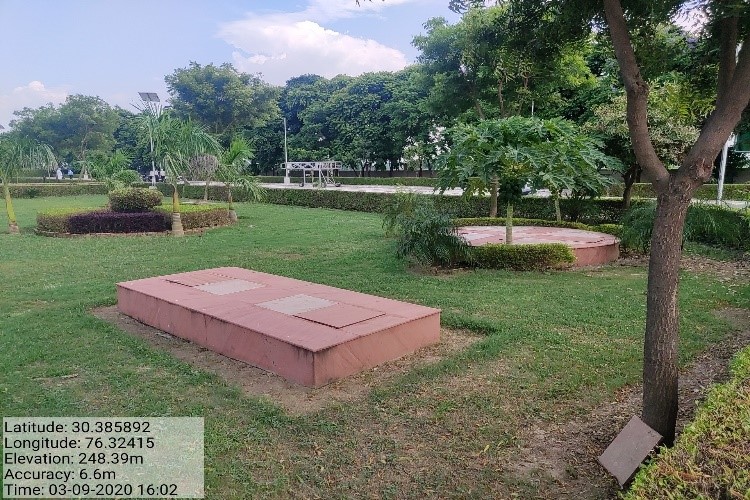 |
The RGNUL campus has been built on the land donated by the village Panchayat. The land area was originally an abandoned brick kilns land having fish ponds. There was about 40 lac litres of water in this area due to abandoned brick kilns & fish ponds. It was a huge task to use this water before the start of construction activities. This water was recharged to the ground through a well. Before recharging, sand filter was prepared so that clean water is recahrged to ground.
RGNUL has constructed 15 properly designed rainwater harvesting structures. RWH structures are well managed & are working very well. These structures are cleaned every year well before the onset of rainy season. With the right mind set the RGNUL has not only managed the storm runoff but also successful in recharging the precious ground water to the tune of approximate 45428 Cubic metre per year through these RWH structures.
In addition to these structures the institution is having playgrounds which are designed in such a way that, sand bed is provided below the grass. It helps not only to keep the playgrounds free from stagnation of rain water but also recharges the ground water table. |
Solar Energy
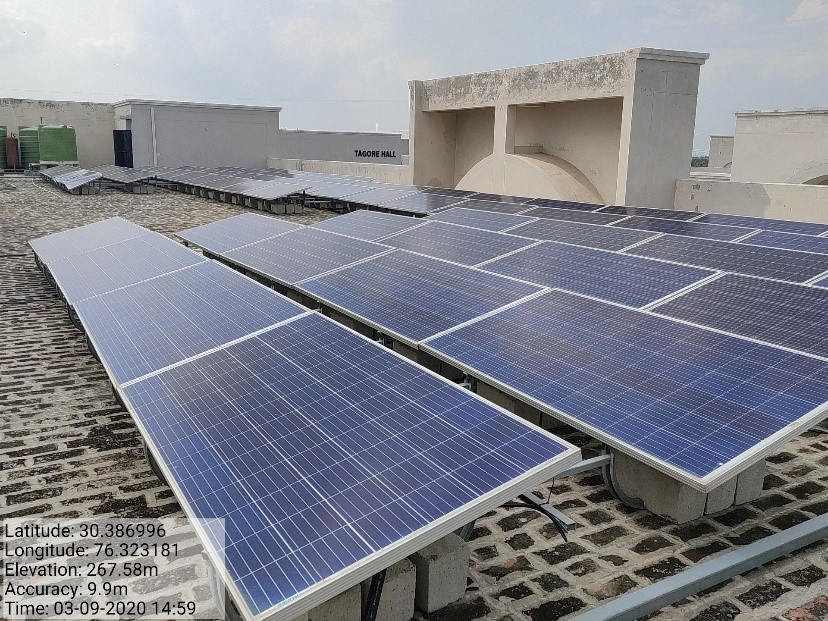 |
To protect and preserve the environment, it is essential that institutions make a consistent endeavour to increase its reliance on green and renewable energy. Towards this end, RGNUL has made an endeavour to shift to renewable energy by installing solar panels on the roof tops of the university buildings. Solar energy has the potential to replace non-renewable sources of energy to a large extent.
RGNUL is a bulk consumer of energy and has sanctioned load of 2302.83 KW / 2558.70 KVA. To make the campus environmentally sustainable and to reduce reliance on non-renewable source of energy RGNUL decided to have solar generation system. Matter was taken up with the Solar Energy Corporation of India (SECI), a government of India unit. Site was inspected & it was worked out that, 620 KWp solar generation system can be installed. Accordingly solar power generation system on roof tops of various buildings of 620 KWp capacity has been got installed through the agency approved by the SECI.
Since the date of installation till 20th June 2020, 7,24,417.7 unit (Kwh) has been produced solar panels thereby saving cost and also ensuring environmental sustainability. |
Sewage Treatment plant
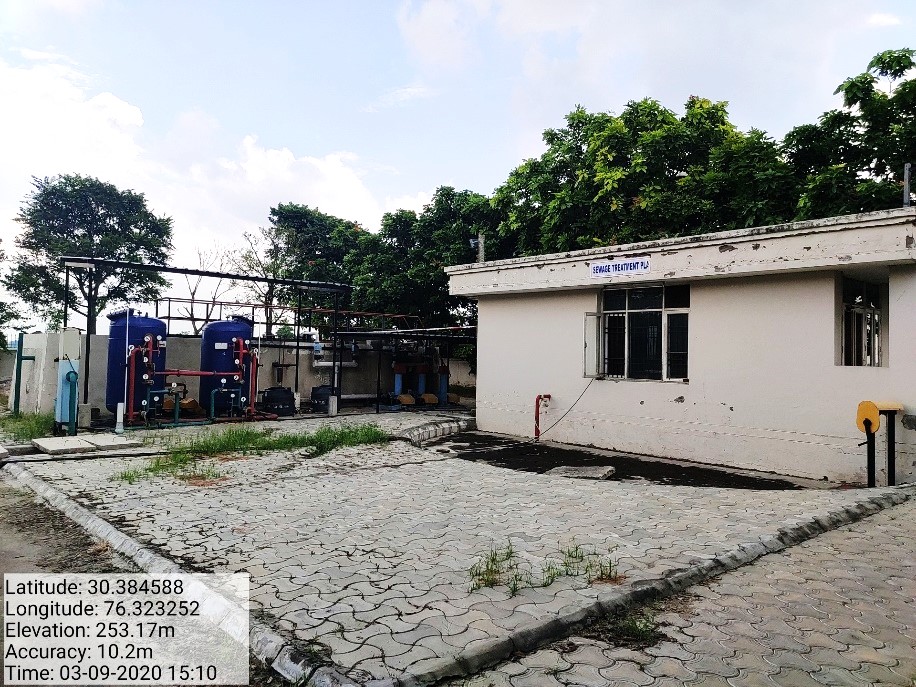 |
Keeping in view the present & future requirement Sewage Treatment plant was got designed for 100 KLD to be extended up to 200 KLD. Accordingly STP of 200 KLD capacity has been made functional. RGNUL is managing its present 105 KLD treated waste water being received from the Sewage Treatment plant for irrigation of green belts. There is also a provision for reuse of treated waste water for flushing during no demand period of irrigation. |
Solid Waste management (Vermiculture)
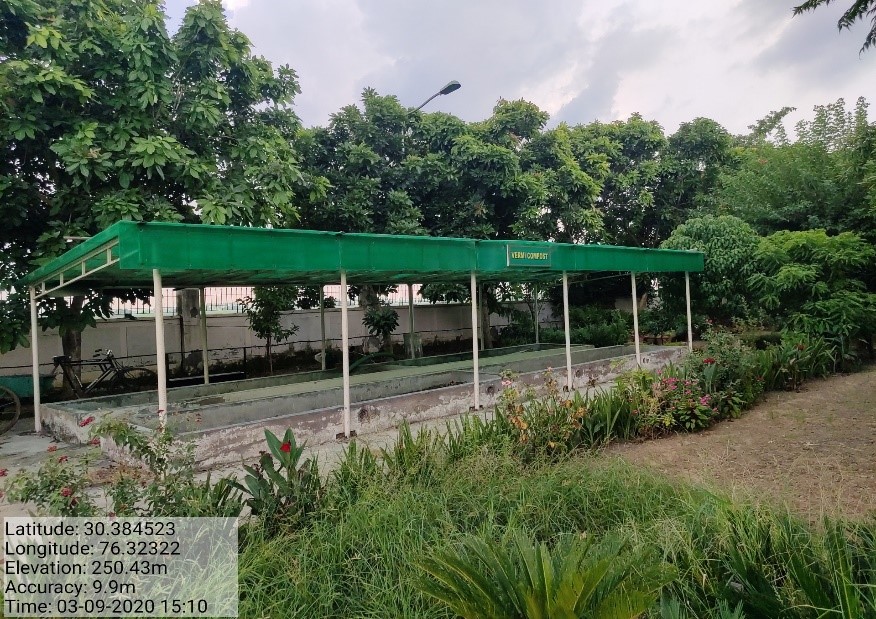 |
Solid Waste management (Vermiculture) has been developed in the campus by separating the degradable & non-degradable materials. Degradable material is processed under Vermiculture system to produce vermi compost. This is being used in gardens / flower beds etc. The non-degradable materials is sent for recycling.
|
Bio Gas Plant
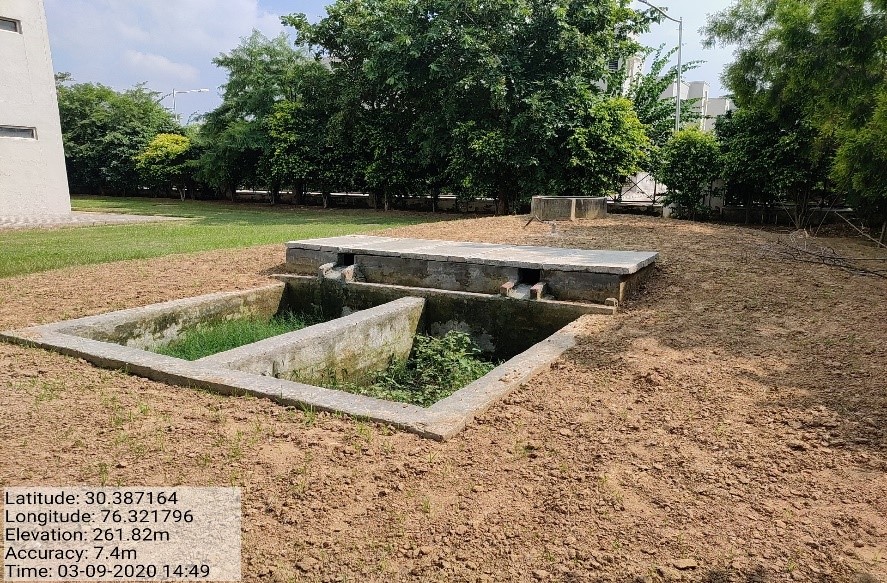 |
Biogas is a renewable, as well as a clean, source of energy. Gas generated through bio digestion is non-polluting; it actually reduces greenhouse emissions (i.e. reduces the greenhouse effect). No combustion takes place in the process, meaning that there is zero emission of greenhouse gasses in the atmosphere. In addition, the raw materials used in the production of biogas are renewable, as trees and crops will continue to grow. Manure, food scraps, and crop residue are raw materials that will always be available, which makes it a highly sustainable option.
Keeping in consideration the of kitchen waste & tree fossils, bio gas plant of 6 cubic metre capacity has been constructed under Deenbandhu bio gas scheme through the authorized personnel. Domestic bio-gas unit is having a digesting chamber where kitchen wet waste & cow dung ferments to produce biogas, through the release of methane. In domestic use one cubic metre plant provides 2-3 hours of clean cooking fuel every day.
|